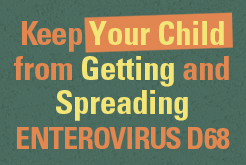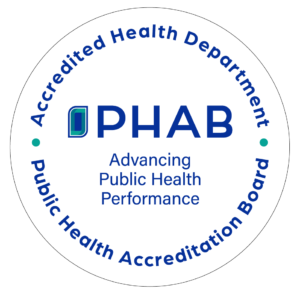 Hospitals in Missouri and Illinois are seeing more children than usual with severe respiratory illness caused by enterovirus D68 for this time of the year. Several other states are investigating clusters of children with severe respiratory illness, possibly due to enterovirus D68. CDC is watching this situation closely and helping the states with testing of specimens. Please see the links below for more information about this virus and how to protect your family.
Hospitals in Missouri and Illinois are seeing more children than usual with severe respiratory illness caused by enterovirus D68 for this time of the year. Several other states are investigating clusters of children with severe respiratory illness, possibly due to enterovirus D68. CDC is watching this situation closely and helping the states with testing of specimens. Please see the links below for more information about this virus and how to protect your family.
What is it? What are the symptoms? How do I get it?
Keep Your Child from Getting and Spreading Enterovirus D68
- Avoid close contact with sick people
- Wash your hands often
- Cover Your coughs and sneezes
- Avoid touching your face with unwashed hands
- Clean and disinfect surfaces
- Stay home when you’re sick
For more information, see www.cdc.gov/non-polio-enterovirus/EV68/
FIRST CONFIRMED CASE OF EV-D68 ENTEROVIRUS IN MARYLAND
BEL AIR, MD, September 25, 2014 – With the announcement on September 25th by the Maryland Department of Health and Mental Hygiene (DHMH) of the first confirmed case of the EV-D68 enterovirus in Maryland, the Harford County Health Department recommends taking precautions against the illness.
Enteroviruses, very common viruses of which there are more than 100 types, occur mostly in the summer and fall. They are transmitted through close contact with infected people and an estimated 10 to 15 million enterovirus infections occur in the United States each year. Although most people infected with enteroviruses have no symptoms or only mild symptoms, some infections can be serious. Infants, children, and teenagers are most likely to get infected with enteroviruses and become sick. Less common than infections with other enteroviruses, EV- D68 has been identified in Maryland previously but had not been confirmed in 2014 until Wednesday.
The most commonly reported symptoms include respiratory symptoms, especially wheezing, with or without fever. More severe cases can result in low oxygen levels and respiratory distress. Most severe cases include children with underlying respiratory disease, like asthma, but some children without asthma diagnosis have presented with wheezing.
Harford County Health Officer, Ms. Susan Kelly, states, “Now that a case of the virus has been confirmed in Maryland, it is important to respond appropriately. Experience shows that simple prevention measures all of us can take will minimize the spread of illness.”
The Harford County Health Department joins DHMH and the national Centers for Disease Control and Prevention in providing families with the following recommendations as a precaution against infection and illness:
- Wash hands with soap and water.
- Cover coughs and sneezes.
- Avoid touching eyes, nose and mouth.
- Avoid touching eyes, nose and mouth with unwashed hands.
- Disinfect frequently touched surfaces, such as toys and doorknobs, especially if someone is sick.
- Stay home if sick.
- Avoiding close contact or sharing of cups and eating utensils with those sick with respiratory illness.
- Provide special attention to children with asthma.
- .Stay up-to-date on vaccinations, especially influenza vaccine, to reduce respiratory illness
Public health officials continue to work with schools and other institutions that monitor student health and activity, while they continue conducting surveillance on the spread and impact of this virus.
For more information about the EV-D68 enterovirus and to access a helpful “Frequently Asked Questions” visit http://www.cdc.gov/non-polio-enterovirus/about/ev-d68.html or contact the Health Department.
# # # # #


